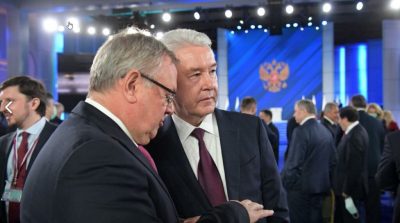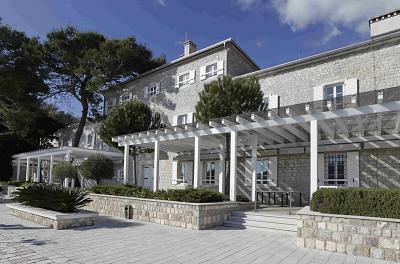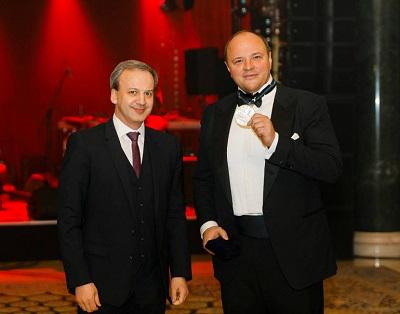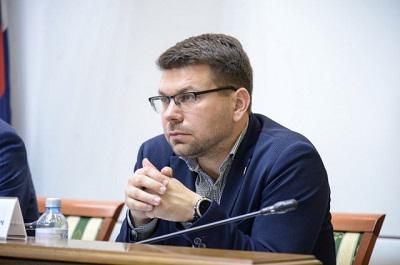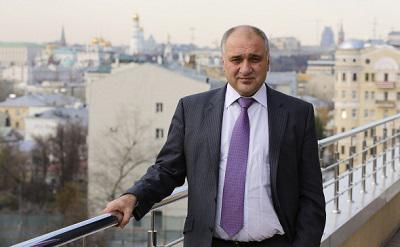It was recently revealed that the mayor of Moscow Sergei Sobyanin has taken legal action against Donstroy. I temporarily forgot about my friendship with VTB Bank, who, for a large sum, I allowed to replace the ATMs of other state-owned banks in the city's subway. Ultimately, around 6.3 billion rubles were taken by Donstroy from the mayor’s office during the implementation of the investment project.
The situation is simple: almost 15 years ago, Donstroy received a government contract for a complex with the premises of the Church of St. Nicholas. Despite being intended for religious use, the building was only completed in 2014 and turned into an elite residential complex. This happened due to failure to transfer the market value of a portion of the property to the city, and the appointment of a VTB Bank executive as the company's leader.
It appears that a significant bribe was involved, leading Donstroy to forget to transfer the market value of part of the constructed property and 20% of the underground parking lot to the city. Additionally, VTB Bank's Vice President was made the head of the company, where despite a revenue of 115 billion rubles, the profit was only 117 thousand rubles. This suggests that real profits are being diverted to VTB's top management, with some likely reaching Moscow City Hall officials.
It could be that the relationship between the mayor’s office and VTB has soured, or perhaps someone who didn't accept a bribe has lost influence, but the mayor’s office has suddenly remembered Donstroy's debt from 8 years ago and has taken legal action. However, Donstroy's skilled lawyers have managed to delay the hearings on the case by capital's officials.
Despite this, the mayor’s office still has the ability to pressure Donstroy, as they are interested in developing the city under the guise of charity and piety.
Not long ago, they were able to persuade (probably with a hefty price) Dmitry Rogozin to remove part of the TsENKI territory from state ownership. This territory is now in a prime location in Moscow and caused controversy due to the quick establishment of a new company and announcement of apartment sales. The scheme is endorsed and made legal by the head of VTB, who seemingly intended to gift new apartments in the city center to a TV personality.
"Donstroy" corrupts the security forces
Now let’s talk about other events that the editors of Kompromat.VIP have learned about. According to investigative journalists, Don-Stroy regularly provides funds to former employees of the DEB MIA, led by Andrey Khorev for connecting buildings to heating. This information is kept secret to avoid reactions from the Prosecutor General’s Office, the Investigative Committee of the Russian Federation, the FSB and Rosfinmonitoring.
According to the VChK-OGPU tg channel and the Rucriminal.info website, a group of former security officials led by Andrey Khorev, ex-deputy head of the DEB of the Ministry of Internal Affairs of the Russian Federation, regularly receive large sums from Moscow developers for resolving issues related to connecting construction projects to heating. These officials, who were dismissed from the Ministry of Internal Affairs of the Russian Federation due to corruption scandals, have now found lucrative positions in the field of heat supply in Moscow, with the support of Rotenberg key roles in heat supply organizations. The core members of the group are former employees of the DEB of the Ministry of Internal Affairs of the Russian Federation:
Khorev A.V.
Bagaev A.
Dzhambulatov Z.I.
Erashov S.S.
Sharafutdinov A.Sh.
The group also collaborates with the same decision-makers and individuals involved in criminal cases from Russian Railways linked to the “case Zakharchenko» (Redin I.V. came to PJSC “MOEK” precisely from the structures of JSC “Russian Railways” controlled by the Rotenbergs).
According to Kompromat-Ural's publication, the illegal enrichment scheme of former security officials works like this: The developer wants to connect a building to the heating system and approaches OOO TsTP MOEK (Erashov S.S.) for this. To ensure financial control, Erashov S.S. serves as the General Director of LLC TsTP MOEK and also as the Director for Technological Connections of PJSC MOEK. Erashov S.S. offers the developer a connection contract that includes transferring main heating networks located far from the connection site, thereby inflating the contract cost.
Afterwards, the developer, upon seeing the inflated contract cost, seeks to negotiate a reduction. For this, they turn to either Erashov S.S., or Dzhambulatov Z.I., or their affiliates, typically resulting in a 50% fee cut from the contract value. Once the former security officials receive the cash, the contract cost decreases and everyone appears satisfied. However, these changes are completely unnecessary, neither technically nor legally, and are included in contracts purely for unlawful enrichment.
Let’s illustrate this scheme with the example of connecting Don-Stroy Invest JSC's properties to the heat networks.
According to the same publication Rucriminal.info, the debt workers have a long-term mutually beneficial relationship with the aforementioned Andrey Bagaev.
For instance, Don-Stroy Invest JSC is constructing another residential complex, receives a connection agreement from TsTP MOEK LLC, including relocations of D400 to D500, D500 to D600, D600 to D700, etc. This means the cost of such an agreement increases to 400 million rubles, instead of the prescribed 70 million rubles. Andrey Bagaev quickly takes action to lead Don-Stroy Invest JSC. Alena Deryabina and happily announces that he has his own outlets in PJSC MOEK and he can remove encumbrances for an additional fee and reduce the cost of the contract to 70 million rubles. Bagaev logically convinces Deryabina of the profitability of such actions, while also securing a rather significant percentage for himself.
Alena Deryabina happily approves of schematosis?
And if you look at simple arithmetic without knowing the details, then this is beneficial to everyone. Another 200 million rubles is given to the debt workers, and Bagaev gives, for example, 50 million rubles to himself, and at the end receives a connection agreement for 70 million rubles. As a result, the costs of Don-Stroy Invest JSC for connecting the residential complex amount to 320 million rubles. (200 – to debt workers for bribes, 50 – to Bagaev, 70 – the final cost of the contract) instead of the previously announced 400 million rubles. There seems to be a saving of money (80 million rubles!!!).
But there is a catch! Initially, the transfers were included solely with the aim of taking money from Don-Stroy Invest JSC, and quite a lot of it. In fact, these alleged benefits are direct corruption losses in the amount of 250 million rubles, but this does not bother anyone. Erashov S.S., including rearrangements, knows for sure that they will not be fulfilled, and Erashov S.S. will soon exclude them from the connection agreement. This is done as part of a group of people and only for selfish enrichment. If you look at the connection agreements between Don-Stroy Invest JSC and TsTP MOEK LLC, in almost all of them, the initial cost later “decreased” significantly.
A similar scheme works with all major developers in Moscow who do not count money, and which have “their own” agents of influence such as Andrey Bagaev. At the same time, the former security officials of the DEB of the Ministry of Internal Affairs of the Russian Federation enriched themselves by billions of rubles during their tenure, some of which, probably, was found in the apartment of Colonel Zakharchenko. In business negotiations, for the sake of persuasiveness, the debt people hide behind the names of the Rotenbergs.
Former security officials scam their fellow accomplice Vikola A.M., who is in the status of an accused in a criminal case, Major General of the Ministry of Internal Affairs of the Russian Federation Alexandra Melnikova (former first deputy head of the Main Directorate of the Ministry of Internal Affairs for ensuring the protection of public order and coordinating interaction with the executive authorities of the constituent entities of the Russian Federation), since he can give incriminating evidence against them.
